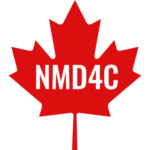Bernard Brais

Investigator
Professor, Neurology and Human Genetics, McGill University
Neurologist and Director of the Rare Neurological Diseases Group, Montreal Neurological Institute and Hospital
NMD4C Involvement: Pillar 1: Preclinical Science, Pillar 2: Clinical Research, Theme 5: Open Science
Email BernardBiography
Bernard Brais, MDCM, MPhil, PhD, FRCP(C) is Full Professor of Neurology and Human Genetics at McGill University in Montreal. He is a trained neuromuscular neurologist, PhD in laboratory human genetics and historian of medicine. He is the director of the Montreal Neurological Institute’s Rare Neurological Diseases Group since 2011, and he is the director of McGill’s Adult Neurogenetics Fellowship.
His specialized practice is centered on the diagnosis and rehabilitation of rare often undiagnosed neurogenetic diseases, in particular: myopathies, ataxias, sensory neuropathies and leukoencephalopathies. Dr. Brais’ laboratory for the past 20 years has largely focussed on identifying new genes and mutations that cause hereditary diseases that are more prevalent in the French Canadian population of Quebec due to founder effects. He played a key role in the first identification of the genes responsible for: Oculopharyngeal Muscular Dystrophy (PABPN1, 1998), Hereditary sensory and autonomic neuropathy type II (HSN2/WINK1, 2004), Limb Girdle Muscular dystrophy LGMD2L-anoctamin 5 (ANO5, 2010), Posterior column ataxia and retinitis pigmentosa (FLVCR1, 2010), 0PolR3-related leukodystrophy (POLR3A and POLR3B, 2011), and congenital myopathy with fibre type disproportion (ZAK, 2017). Since 2007, he has been an international leader on collaborative research on Autosomal Recessive Spastic Ataxia of Charlevoix-Saguenay (ARSACS).
Recent Publications
Fortin, J, Synofzik, M, Pedneault-Tremblay, ÉA, Hermle, D, Thieme, A, Timmann, D et al.. The Cerebellar Cognitive-Affective Syndrome Scale Reveals Consistent, Early, and Progressive Neuropsychological Deficits in Autosomal-Recessive Spastic Ataxia of Charlevoix-Saguenay: A Large International Cross-Sectional Study. Mov Disord. 2026. PMID:41669957
Bustamante, ML, Miranda, M, Pellerin, D, Barreto, M, Silva, C, Miranda, AC et al.. Repeat Expansions in a Chilean Cohort with Adult-Onset Cerebellar Ataxia. Cerebellum. 2025.25 (1)3 PMID:41428128
Wong, AD, Airas, L, Alvarez, E, Antel, J, Araujo, D, Bernard, G et al.. Towards a neuroimaging consensus for the workup of adult genetic leukoencephalopathies on behalf of the White Matter Rounds Network: State of Practice. AJNR Am J Neuroradiol. 2025. PMID:41371978
Zheng, X, Cen, Z, Chen, X, Zhang, F, Ying, C, Jin, N et al.. A Complex FGF14 (TTC)/(TGC) Repeat Expansion in Parkinson's Disease. Mov Disord. 2025. PMID:41277530
van Voorst, RJ, Schoenmakers, DH, Bonkowsky, JL, Vanderver, A, Krägeloh-Mann, I, Bernard, G et al.. Consensus-Based Expert Recommendations for Diagnosis and Clinical Management of Vanishing White Matter. Neurology. 2025.105 (11)e214320 PMID:41232062
See more on PubMed